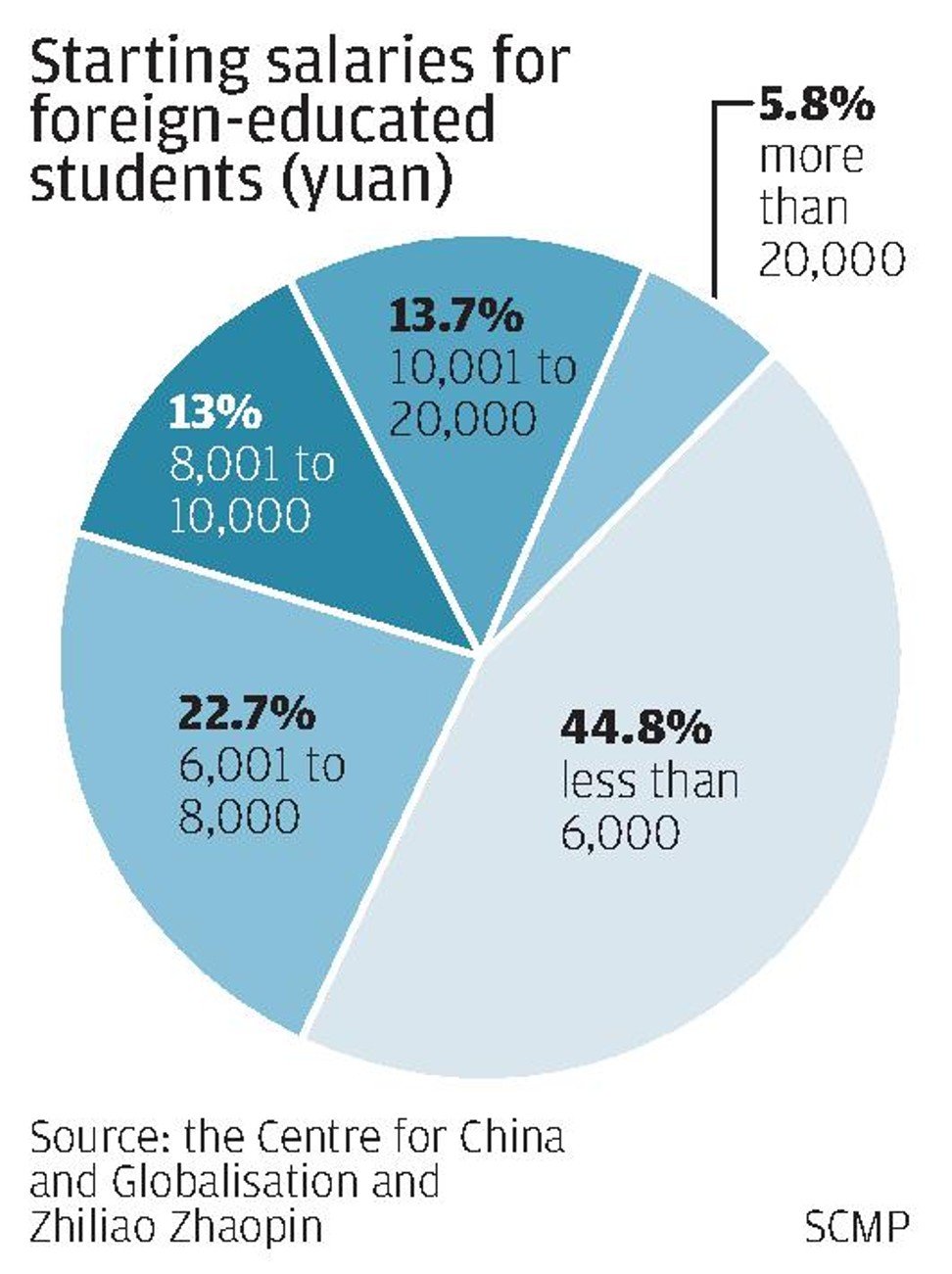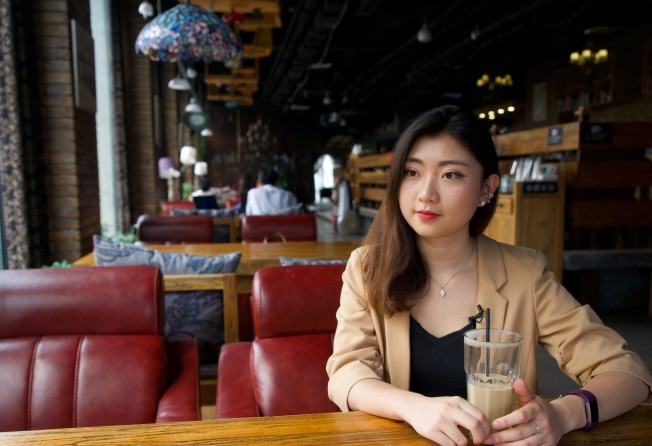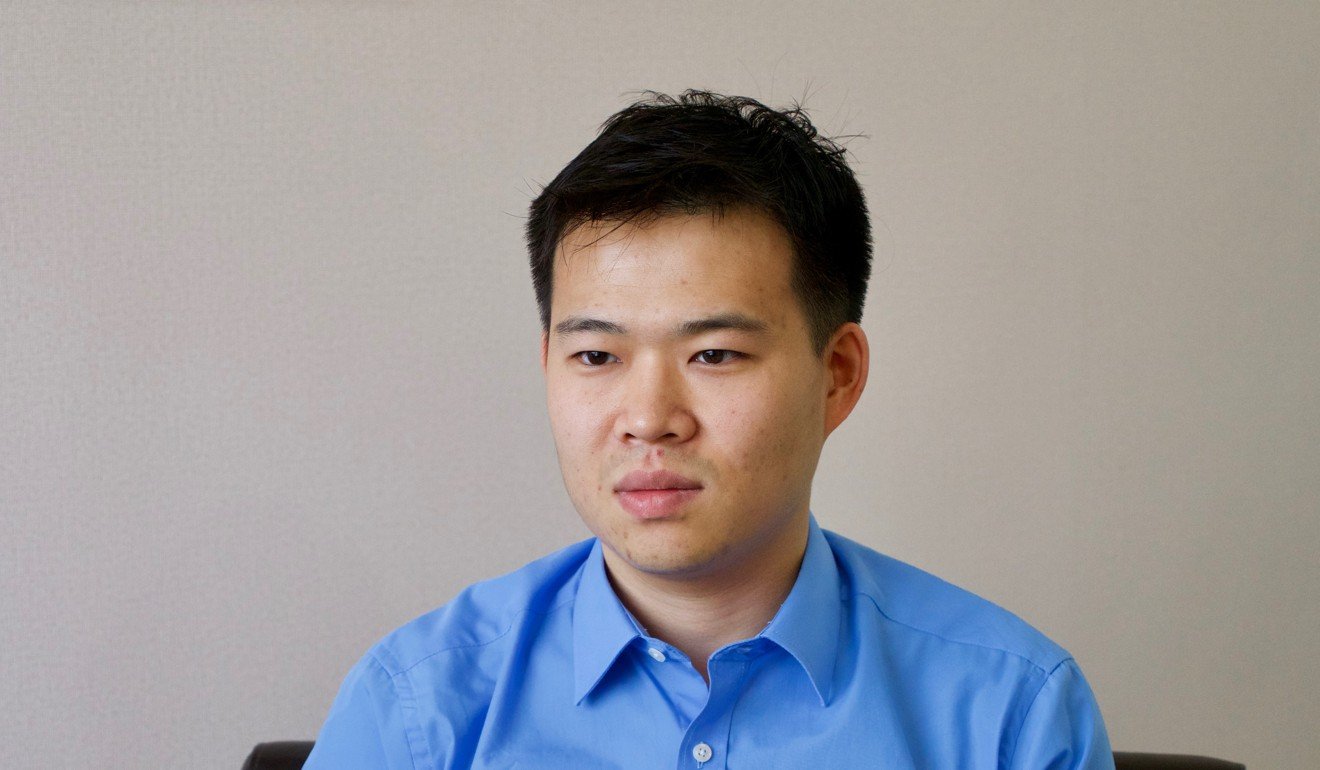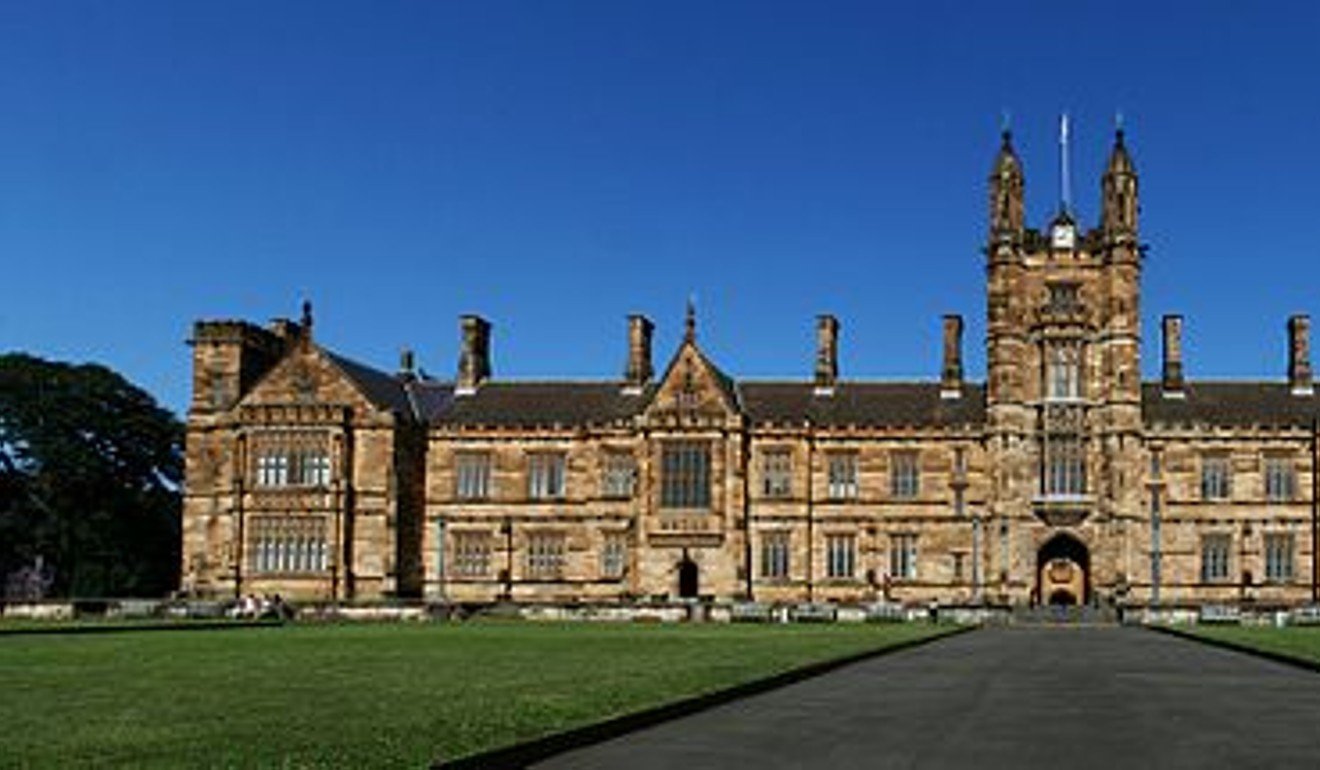
As sea turtles turn into seaweed, Chinese graduates look beyond the career ladder to find value in studying abroad
An unflattering nickname for those returning from universities overseas highlights that this path is no longer a sure route to success

Lucy Liu returned to her hometown of Beijing in July hoping to settle down there after finishing her postgraduate studies in documentary production in New York University.
However, after being interviewed by the best-known studio in her field on the mainland, the 28-year-old began to have second thoughts.
“The pay would be 150,000 yuan for one documentary and at best I could finish one documentary a year.
“After spending so much on my studies, I couldn’t accept that pay,” said Liu, who spent around a million yuan (US$152,600) in tuition, rent and other living expenses while overseas.
Liu is not alone in having to adjust her expectations after returning from overseas. Unlike the golden era of the 1990s, a foreign qualification no longer automatically lands graduates a prestigious, high-paying job.
Amid growing competition, starting salaries for overseas graduates are now only marginally higher than those of locally educated applicants – despite the huge investment required for a foreign education.
But for many, the benefits of studying overseas cannot be measured in financial terms alone.
Liu counts herself as one of the more fortunate ones – rather than settling for the lower-paid role she was offered, she opened her own studio to edit documentaries as a freelancer.
She picked up two long-term jobs that would yield a steady income over the next 18 months and took small jobs for shorter videos at 15,000 yuan each.
“I think I am on of the lucky ones, being able to land on my feet so quickly. Some of my friends are still struggling,” Liu said.
According to the Ministry of Education, last year 544,000 people went abroad to study and 432,500 returned after finishing their foreign education. Nearly 80 per cent of students chose to go back China after completing overseas study.
These graduates were once applauded as “hai gui”, a Chinese word for returned students that sounds like the word for “sea turtle”.
However, with lucrative prospects dwindling, a new and far less flattering phrase entered the lexicon to describe returnees waiting for a job – “hai dai”, which sounds like “seaweed”.
A report released earlier this month found that while more than one third of foreign-educated students found their first job within three months and nearly 89 per cent within half a year, more than 68 per cent made less than they expected.
Some 30.3 per cent of students think they can earn back the cost of their studies in three to five years, 24.1 per cent think it will take one to three years, 22.5 per cent think five to 10 years and 17.5 per cent more than 10 years. Only 5.6 per cent thought it would take takes less than a year.
Compiled by the Centre for China and Globalisation (CCG) and Zhiliao Zhaopin, a recruitment agency, the report found 44.8 per cent of returned students earned less than 6,000 yuan per month as their starting salary.
Among the higher earners, 35.7 per cent made between 6,000 yuan and 10,000 yuan per month (US$900-US$15,000), 13.7 per cent made 10,001-20,000 yuan and only 5.8 per cent of returned students earned more than 20,000 yuan.
These figures are just slightly higher than the average pay of new graduates on the mainland, which is 4,777 yuan for postgraduate students and 3,678 yuan for those with a bachelor or equivalent degree.
Mainland tuition fees are much lower, usually between 3,000 yuan to 10,000 yuan a year.
While the fees charged by overseas universities vary, foreign institutions usually charge fees that run into tens of thousands of US dollars to overseas students, whom they regard as a valuable source of income.
For students like Liu, studying in a city like New York also adds considerably to the costs they face.
Liu’s fellow New York University alumnus Eric Zhang, who studied music technology and spent more than 1 million yuan on his overseas education, found himself unable to land a job in his chosen field that could support his living costs.
After going through 20 interviews in almost a year, Zhang gave up.
He stopped looking for jobs related to the music industry and, instead, he found a job in a state-owned publishing company.

Li Qing, a researcher from CCG who was in charge of compiling the report, said graduate salaries varied from industry to industry. Those working in IT and finance were likely to get better pay while those in sales or government were on lower salaries.
The surprise many expressed over their comparatively low salaries offers highlights a large expectation gap among returned overseas students, who Li said were often overconfident and lacked knowledge about the best channels to find work, and what skills employers were looking for.
Most recent graduates land work through campus recruitment programmes and internships, but overseas students often miss the key time periods while they are abroad.
When they come back to start job hunting, they find themselves competing with those who already have some work experience, Li said.
“The biggest problem for overseas students are they can’t find a job that matches their major perfectly. They find themselves in a massive wave of returned students and they lack work experience to compete with those with some experience,” Li said.
Although they face much higher tuition and living expenses than in China, Li urged students not to calculate the return on the investment in overseas education solely in financial terms.
“You can’t weigh the pros and cons in direct financial terms because the overseas studies have other benefits such as enhanced personal development and a broader vision,” Li said.
“Overseas study cannot guarantee everything, but foreign-educated students have great potential and at some point their break will come.”
That sentiment was echoed by Yang Liujinya, 26, who is now in charge of training teachers and developing the curriculum in an English training centre affiliated to a university in Beijing.
Graduating from the University of Edinburgh two years ago with a degree in digital media and culture, Yang soon realised this had not given her much of an edge in the job market and she accepted an alternative job offer teaching English for 3,000 yuan a month.
“My brief research found my education did not give me much of an advantage finding work in Beijing and Shanghai.
“Nobody cares if you graduate from a top university in the United Kingdom unless you graduate from the few that everyone knows by name,” Yang said.
Adjusting her expectations after discovering that some doctorate degree holders were teaching in middle school, Yang was satisfied with her first job because education was one of the areas she is interested in and was confident her education would pay off in eventually.
“I consider studying overseas a long-term investment that can’t yield returns immediately, but my value and vision are different.
“I handle things differently and I am stronger at solving problems, which made me stand out among my peers,” Yang said.
Soon there was an opportunity of transferring to a new post and Yang rose to the occasion and saw her salary rise to 20,000 yuan after tax in her new post.

Zhang Qian, 27, a graduate from the University of Sydney, took a job at an advertising agency for 6,000 yuan a month without even thinking about how it contrasted with the amount she spent on studying in Australia.
“I don’t think people care too much about how much they spend and how little they earn if they plan to study abroad.
“It takes forever to earn back how much you spend, but the experience of studying overseas and an advanced degree from a very good university is very attractive,” Zhang said.
Lucy Liu, who is now successfully running her own documentary studio, also said it was unfair to calculate only the economic return from her studies and was grateful for the experience.
“Apart from the usual benefits of self-improvement and broadened vision, I have become a woman with special skills which I can always depend on to bring food to the table. I think I made a good choice at the right time,” said Liu.
For Yang the foreign study experience also came with more personal rewards.
“I met my boyfriend in my university. We were from different majors. I came to Beijing because that is his hometown and we are getting married this month,” said Yang.